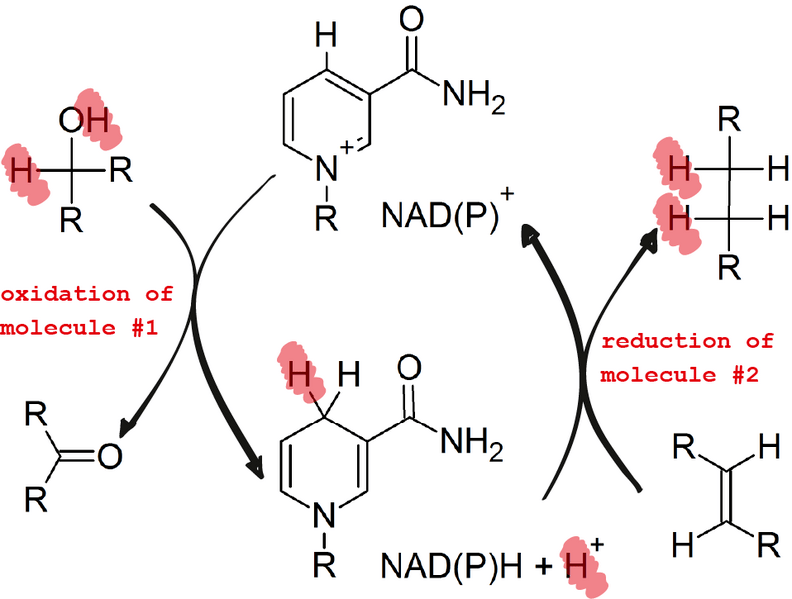If you have spent any time in longevity circles or reading about health recently, you have likely come across mention of NAD. What is NAD and why is everyone so focused on it as a means for improving healthspan? I’ll dig into this and discuss ways of improving NAD levels. I’ll also discuss what I currently do after all of the research I’ve conducted on myself.
What is NAD?
NAD is Nicotinamide adenine dinucleotide. It is a coenzyme that is found in all cells and involved in many processes within those cells. It exists in two forms: the oxidized (NAD+) and reduced (NADH). These forms contribute to cellular metabolic processes by either donating or gaining electrons.
Why is NAD important?
When we are discussing NAD’s role in maintaining healthspan, there are three main areas of focus that are often discussed:
- NAD plays a vital role in metabolism by helping the mitochondria convert food and oxygen into energy by being an electron donor for the synthesis of adenosine triphosphate (ATP)
- NAD is essential in maintaining proper neurological and organ health
- NAD is involved in the epigenetic control of gene expression. This occurs by activating sirtuins and PARPs which are responsible for repairing and maintaining our DNA.
Improving NAD Levels
NAD declines with age. There have been several studies that correlated almost all of the diseases of aging with lowered levels of NAD. Due to this, there is a lot of interest in improving NAD levels as we age. Here are a few ways to do so.
Increasing NAD+ with Its Precursors
NAD is constantly being broken down and resynthesized in the body. One approach to improving NAD levels has been to supplement with NAD precursors. The theory here is that these substances will eventually be turned into NAD by the body. There are many precursors that will do this. The two most popular are nicotinamide mononucleotide (NMN) and nicotinamide riboside (NR). There have been conflicting reports regarding the effectiveness of this. Some claim that they are broken down to simpler compounds before crossing into the bloodstream.
Lifestyle Changes
There are many lifestyle choices that are responsible for improving NAD levels. It’s great that many of these are ‘no brainers’ in terms of their other impacts on healthspan. The most common lifestyle changes for improving NAD levels include:
- Exercise – This continues to be the king for improving healthspan across the board.
- Circadian Rhythm alignment – fix your sleep and fix everything including your NAD levels.
- Caloric Restriction/Eating Habits – restricting your calories will increase your NAD levels. A high fat and/or sugar diet will cause an imbalance in the NAD+/NADH ratio leading to downstream issues with NAD+. Certain foods/supplements can be used to inhibit NAD+ consumers that may not be optimal given your situation.
- Hot/Cold Shock – Using a sauna or cold plunge can raise NAD levels. The mechanism is different with hot vs cold, but the outcome will be similar.
- Limiting Alcohol Consumption – Alcohol consumption increases the ratio of NADH to NAD+. When the ratio is skewed in this way, NAD+’s capacity to activate sirtuins is impeded.
What Do I Do to Improve My NAD Levels?
So given the existing studies, what do I do to improve my NAD Levels? Obviously, I exercise, try to eat healthy, follow time restricted feeding and value Circadian alignment. If you’ve been reading my posts, you likely know I’m a fan of Hot/Cold environmental stress as well. You might also know my views on limiting alcohol consumption as well.
Precursors
For a long time, I relied on the precursor supplements. Initially I focused on NR but then switched to NMN. I took a supplement containing several precursors, sirtuin activators and other B vitamins as part of a clinical trial. This is where I was introduced to a mechanism for measuring NAD levels. This product worked for me but was fairly expensive. I have since been able to get similar results by following my current approach.
I still occasionally supplement with NMN, but recent studies that show potential for upregulating cancer growth have convinced me to dial that back. Instead, my supplementation focus is now mainly in two separate areas. Focus on optimizing the NAD+/NADH ratio and the NAD salvage pathway.
Salvage Pathway
The best way to generate NAD via the salvage pathway is to provide the precursors tryptophan, niacin and niacinamide. I regularly supplement with essential amino acids which provides plenty of tryptophan. I’ve written about how I use niacin as part of my sauna protocol. On top of this, I take 50mg of niacinamide in water first thing in the morning and last thing before I go to bed.
Optimizing NAD Ratio
I feel that focusing on optimizing the salvage pathway already helps with maintaining the NAD+/NADH ratio, but I do one additional thing regarding this. I take supplements to inhibit CD38. Right now, I’ve been using apigenin and quercetin to do this.
So what are your thoughts on NAD? Are you doing anything to optimize your levels? Let me know in the comments.


Leave a Reply